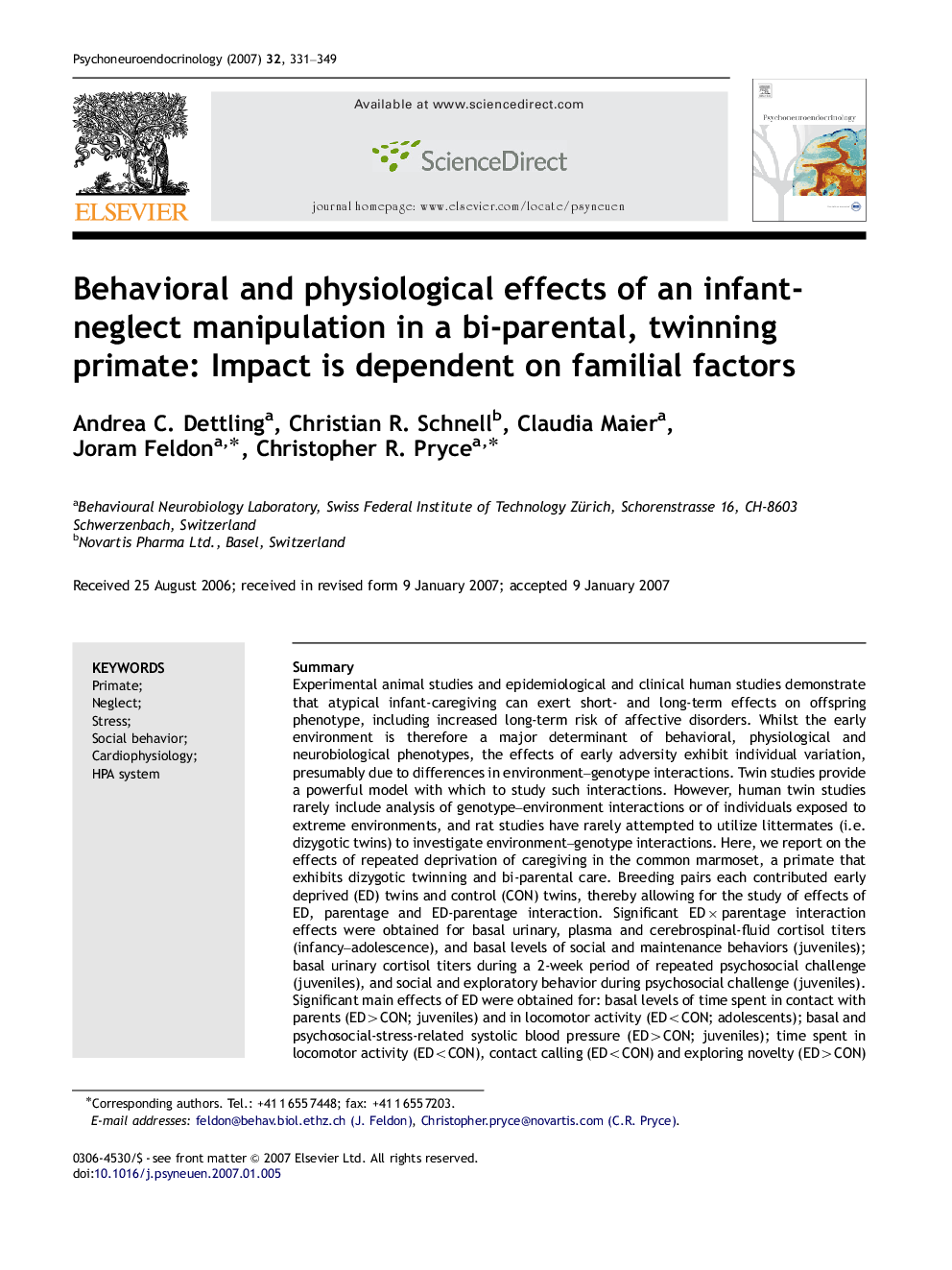| Article ID | Journal | Published Year | Pages | File Type |
|---|---|---|---|---|
| 336838 | Psychoneuroendocrinology | 2007 | 19 Pages |
SummaryExperimental animal studies and epidemiological and clinical human studies demonstrate that atypical infant-caregiving can exert short- and long-term effects on offspring phenotype, including increased long-term risk of affective disorders. Whilst the early environment is therefore a major determinant of behavioral, physiological and neurobiological phenotypes, the effects of early adversity exhibit individual variation, presumably due to differences in environment–genotype interactions. Twin studies provide a powerful model with which to study such interactions. However, human twin studies rarely include analysis of genotype–environment interactions or of individuals exposed to extreme environments, and rat studies have rarely attempted to utilize littermates (i.e. dizygotic twins) to investigate environment–genotype interactions. Here, we report on the effects of repeated deprivation of caregiving in the common marmoset, a primate that exhibits dizygotic twinning and bi-parental care. Breeding pairs each contributed early deprived (ED) twins and control (CON) twins, thereby allowing for the study of effects of ED, parentage and ED-parentage interaction. Significant ED×parentage interaction effects were obtained for basal urinary, plasma and cerebrospinal-fluid cortisol titers (infancy–adolescence), and basal levels of social and maintenance behaviors (juveniles); basal urinary cortisol titers during a 2-week period of repeated psychosocial challenge (juveniles), and social and exploratory behavior during psychosocial challenge (juveniles). Significant main effects of ED were obtained for: basal levels of time spent in contact with parents (ED>CON; juveniles) and in locomotor activity (ED
